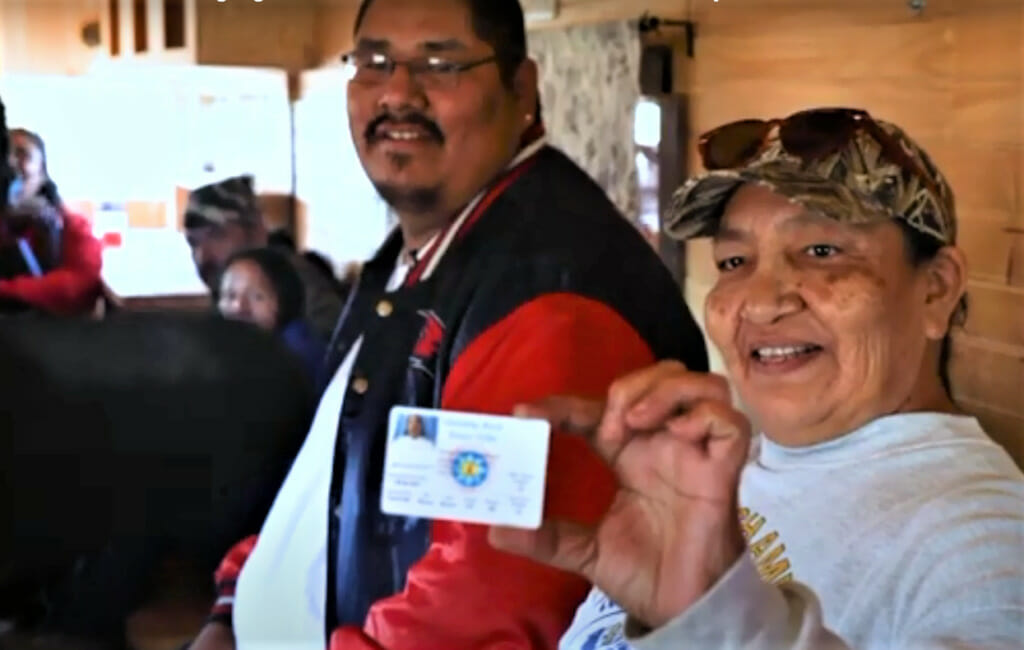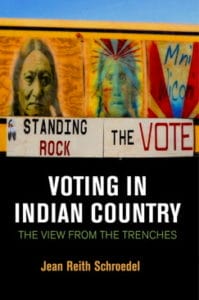New Book Takes Aim At Voter Suppression in Indian Country

“Even though pundits devote enormous amounts of attention to changing demographics, pontificating about whether the fabric binding the nation together will hold as the population becomes increasingly diverse,” writes Jean Schroedel in the opening pages of Voting in Indian Country: The View from the Trenches (University of Pennsylvania Press), “these discussions rarely mention the descendants of the original inhabitants of the North American continent.”
As various political commentators have ratcheted up the rhetoric on voter suppression this season, Schroedel’s new book takes aim at how genuinely suppressive efforts have been used against Native American voters for much of their history.
Loading...
What does suppression look like? Often it comes down to a matter of miles.
One of the most effective attempts, she shows, involves long distances.
Many Native American voters are forced to drive 100 miles (or more) round trip to cast their votes, while the rest of us take for granted the polling place down the street. Often tribes have had to turn to the courts to fight for the same access that other Americans have.

A professor emerita of political science at CGU, Schroedel draws on a multitude of sources—including first-person accounts, oral histories, historical documents, legal cases, and her personal experiences in Indian Country—to create her impassioned study of the troubling factors behind what she calls our nation’s “collective amnesia” when it comes to the democratic rights of its Native citizens.
“Perhaps this erasure of Native people’s existence,” she writes unapologetically, “is a way to ‘whitewash’ the past and allow the rest of the country to enjoy Thanksgiving meals without thinking about promises made and broken by earlier generations of American leaders.”
A Dedicated Fighter Against Voter Suppression
In many ways, Schroedel’s new book is a culmination of a lifetime’s work and research.
Schroedel served as an expert witness in the 2014 case of Wandering Medicine vs McCulloch, in which a group of Native Americans sued state and county officials, arguing that the long distances they had to travel to reach election offices effectively denied them an equal ability to register and vote.
In that case, lead plaintiff Mark Wandering Medicine had to travel 180 miles round trip if he wanted to do late registration or early voting at the county seat. The lawsuit was settled in favor of the plaintiffs in the federal District Court in Billings when government officials agreed to open satellite election administration offices to reduce the distances to travel in order to vote.

Schroedel also has taken teams of doctoral student researchers out into the field to collect data on voter suppression in Montana as well as employ technology to overcome hurdles.
Schroedel and colleague Brian Hilton of CISAT also received much media attention in 2018, during the U.S. midterm elections, for their efforts to use mapping technology to help Native Americans protect their voting rights against a North Dakota voter ID law.
Much of this work in 2018–and much of her work in the past decade–has been conducted through an effective collaboration with the Native American advocacy group, Four Directions.
- Watch a video here about Schroedel’s work and CGU’s research on Native American voting rights: